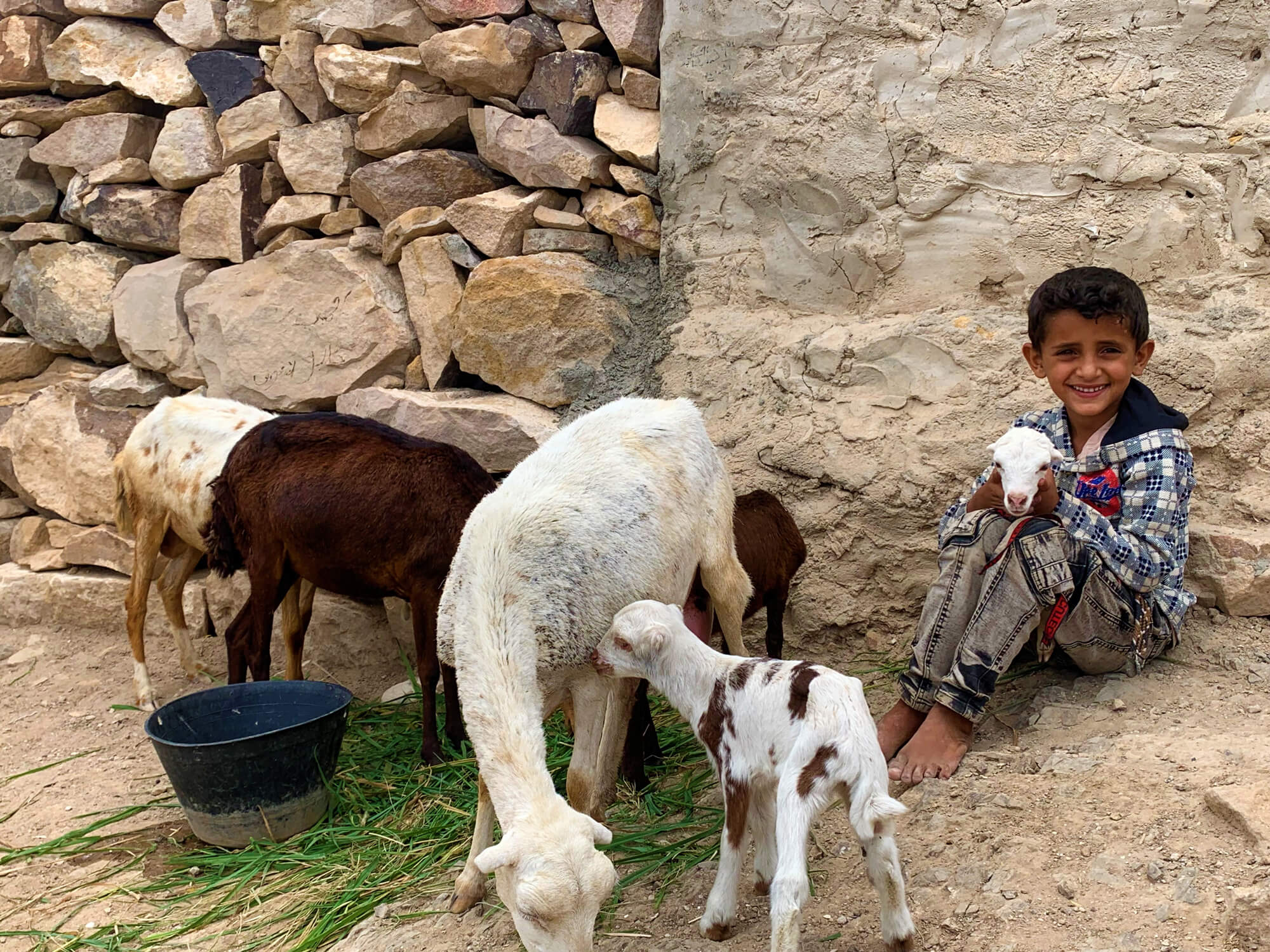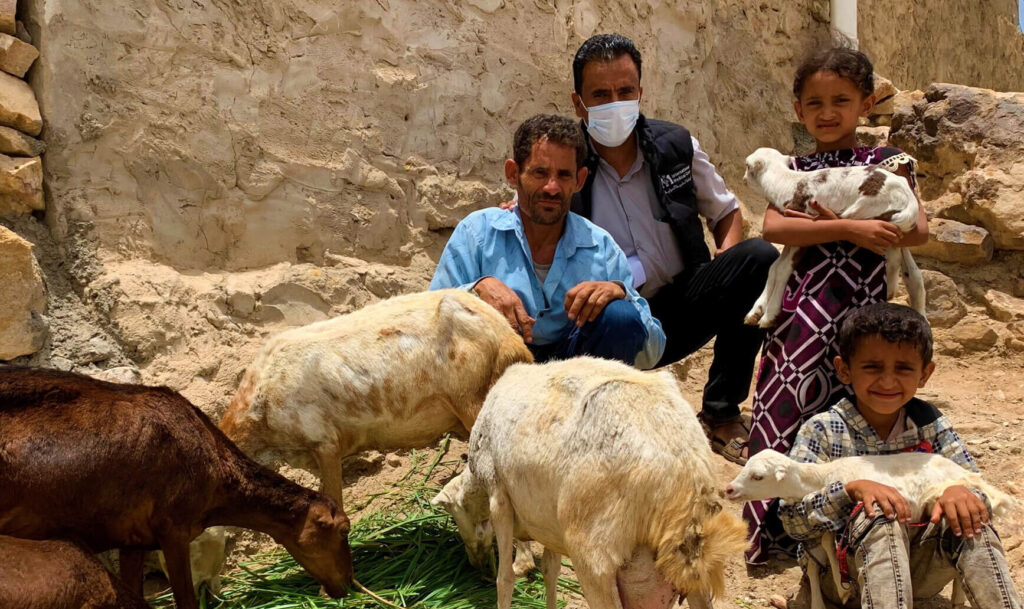Abduljabbar Ahmed, a father of six who is in his 40s, lives in Akmat Al-Mouz village in the Arhab subdistrict of Yemen’s Al-Dhale’e governate. Before the war, Abduljabbar worked in a shop selling building materials in Al-Dhale’e city, and was able to provide for his family’s needs, including food and education. However, like many other people, Abduljabbar said that the war changed the course of his life. He lost his job in the shop and, without a source of income, spent all his savings to cover the basic needs of his home and his children during the first two years of the war.
Abduljabbar said that one day, while he was working as a day laborer on a farm in the village, some volunteers from International Medical Corps visited with his wife. One of the volunteers took the mid-upper arm circumference (MUAC) of two of Abduljabbar’s children, Libnan and Issa. MUAC is an indicator commonly used to identify acute malnutrition in young children, and the volunteers found that both children were malnourished. They provided advice to Abduljabbar’s wife and some nutritional supplements for the children, and asked the family to go to the International Medical Corps-supported health facility in Arhab so that Libnan and Issa could receive appropriate healthcare and be registered in the facility’s malnutrition records. With great effort, Abduljabbar and his wife continued returning to Arhab Health Facility to get medical and nutritional assistance for Issa and Libnan, and the result has been excellent: over time, the health of the two children began to improve.

In late 2020, another team from International Medical Corps came to Abduljabbar’s house. In addition to taking Libnan and Issa’s MUAC again, the team asked Abduljabbar some questions—including whether he had owned animals before and whether he had a suitable shelter for animals. The team explained to Abduljabbar that he qualified to participate in International Medical Corps’ animal restocking project in the Al-Hussein District in Al-Dhale’e, which aimed to restore lost livestock assets, diversify income and increase the availability of animal-source foods, particularly dairy and meat. Our team targeted vulnerable households with pregnant or lactating women, or children under 5 with acute malnutrition who were registered at International Medical Corps-supported health facilities, providing sheep or goats, according to the preference of the household. The team also assisted the recipients of livestock with animal fodder, concentrated feed and mineral salt-licks—blocks that can increase animal milk production and that help people maintain their animals, especially during lean seasons.
Abduljabbar received three female sheep—one that was lactating and two that were pregnant. Four months after the distribution, the pregnant sheep each gave birth to two lambs—meaning Abduljabbar now owns four new sheep, in addition to the three that he received from International Medical Corps! The family gives Libnan and Issa the sheep’s milk, which Abduljabbar’s wife also uses in the meals she prepares for the whole family. Abduljabbar said that the assistance that he received from International Medical Corps restored his hope and gave him an incentive to take care of the animals, which have become an important source of income and food. “I like my animals, and I take care of them like they are part of my family,” he said.
